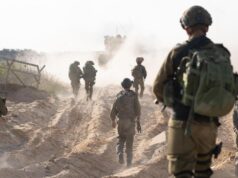A remorseless Faisal Shahzad pleaded guilty yesterday to attempting to blow up an explosive-laden SUV in New York City’s Time Square on a busy Saturday night in May. “It’s a war,” Shahzad said. “I’m going to plead guilty a hundred times over because until the hour the U.S. pulls its forces from Iraq and Afghanistan … we will be attacking the U.S.,” he said. The would-be Times Square bomber did not apologize for his actions that could have killed and wounded hundreds. “One has to understand where I’m coming from,” Shahzad told the judge. “I consider myself … a Muslim soldier.”

Faisal Shahzad in court on June 21, 2010 |
|
According to the indictment, Shahzad received $12,000 prior to the attack from the Pakistani Taliban through cash drop-offs. According to federal authorities, the money was channeled through an underground transfer network known as hawala. Typically, in the hawala system, a courier comes to the United States carrying less than $10,000 in cash to remain under the amount that must be declared at U.S. Customs. That courier then gives the cash to a “hawala dar,” a person who controls the money – who then gives it to the intended person.
The indictment also accuses Shahzad of receiving explosives training in Waziristan, Pakistan, during a trip there in 2009, just months after he became a naturalized American citizen. Sentencing for Shahzad is set for October 5; click here to see the list of charges against him.
Shahzad is only one of a number of homegrown terrorists that have surfaced over the past few years. His attempted attack came just six months after the deadly shooting rampage at Fort Hood in Texas in November 2009, allegedly carried out by Army Maj. Nidal Hasan, an American-born Muslim of Palestinian descent. And in December, five American students from the Washington, DC suburbs were arrested in Pakistan after they attempted to join a militant-training camp.
What Shahzad’s case, as well as the others, prove is that homegrown terrorists pose greater difficulties for counterterrorism officials to track than foreign suspects. Six months into the new decade and nine years into the War on Terrorism, it is becoming increasingly clear that the United States needs to develop more efficient strategies to counter the threat of terrorists at home.





